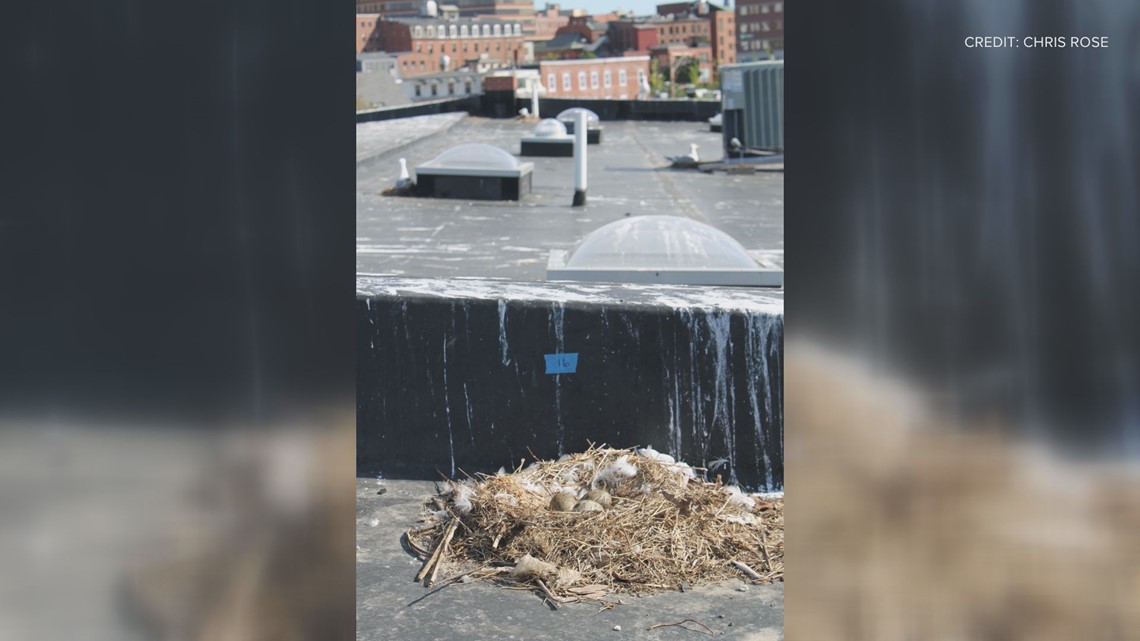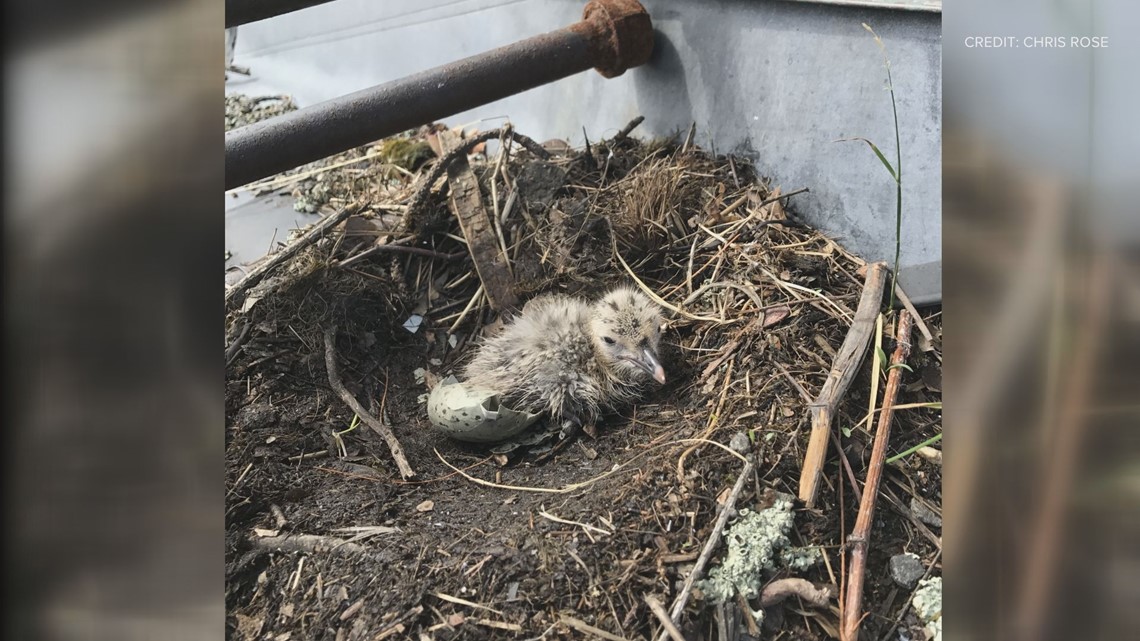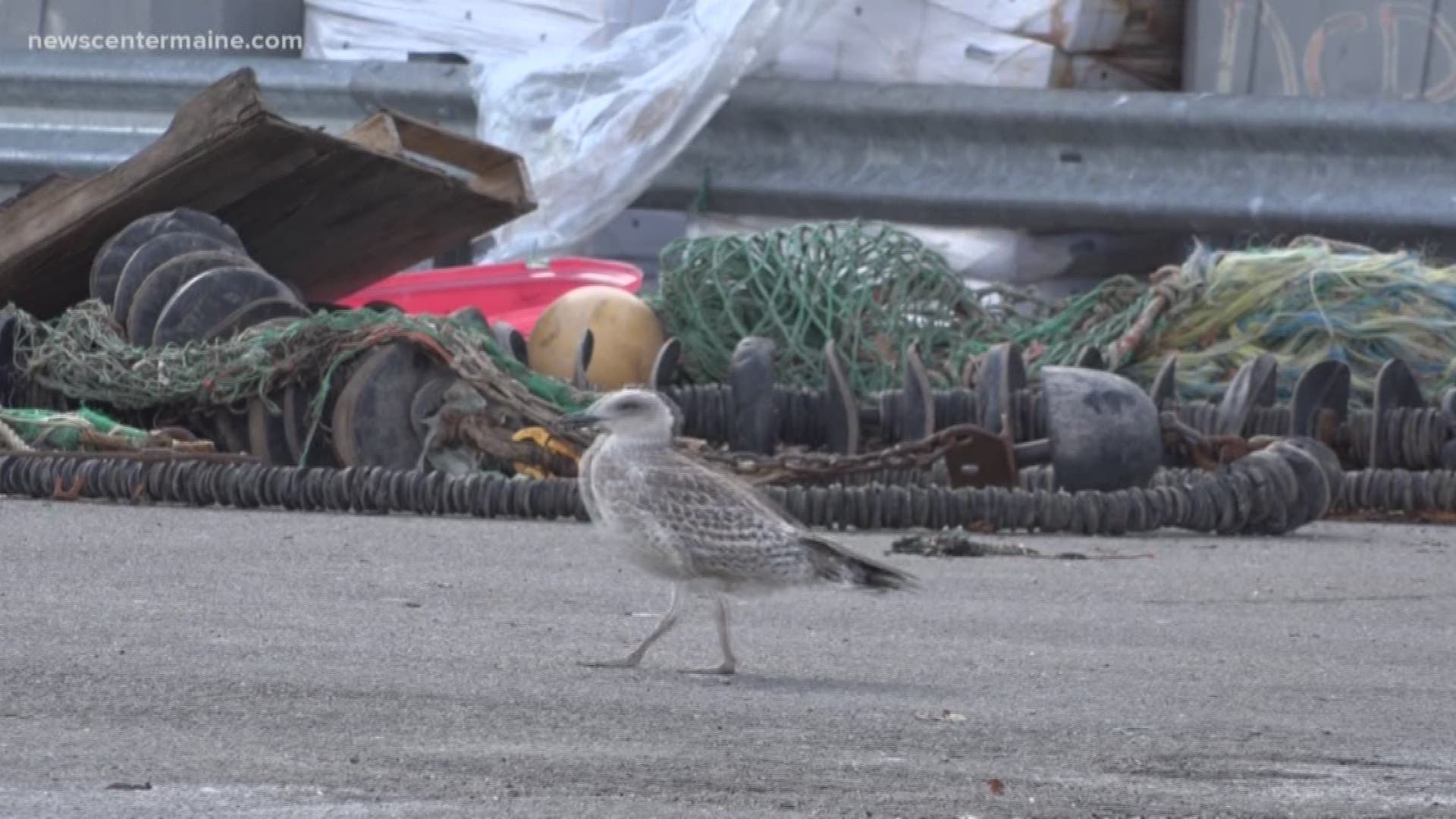PORTLAND (NEWS CENTER Maine) -- Their squawks are noisy and they can make a real mess on our cars. But seagulls are smarter than we think.
That's according to Dr. Noah Perlut at the University of New England. His findings, from the last seven years, suggest seagulls are more than trash diggers and sandwich snatchers.
"The stigma around gulls is that they eat trash all day," said Dr. Perlut.
Arguably, no one knows the secret life of sea gulls better than Dr. Perlut.
"Everything that I've been looking at since 2011, so far, suggests that that stigma couldn't possibly
be anymore incorrect," he said.
The associate professor of Environmental Studies at the University of New England is researching the Herring gull, the most common gull species in Maine.
"They're not eating French fries and pizza and sandwiches. That's a really rare occurrence," he said.
How does he know this? He goes where the gulls go. Dr. Perlut finds nests on Portland rooftops where gulls are frequently flocking these days. He says an important indicator of diet is what the gulls are feeding their chicks.


"So when we pick up the chicks to either weigh them or put bands on their legs, the chicks' first response is often to ro regurgitate," he explained. "So we then collect those samples, freeze them, and dissect them."
He says they consume for the most part "good stuff" like fish, crab, shrimp, insects and the invasive green crab.
"That the gulls are probably helping control," he adds.
But up on the rooftop is where Dr. Perlut discovers another trend.


He says it appears the gulls are choosing to nest here, instead of on islands where they normally would. The reason? The rooftop is safer for them because there's less risk from predators like the black-backed gull.
Information collected from a bird's eye view is providing an interesting perspective into the life of gull.
"Can a seagull drive an Uber? No," said Dr. Perlut. "But the gull can look at our resources, and take advantage of our resources. That's clear observation and learned behavior. That's pretty smart."
Another myth: it might seem like gulls are everywhere. But, Dr. Perlut says Maine's seagull population is declining. There's no clear reason identified, but it could have something to do with a change in the species of fish available to them in the Gulf of Maine.

